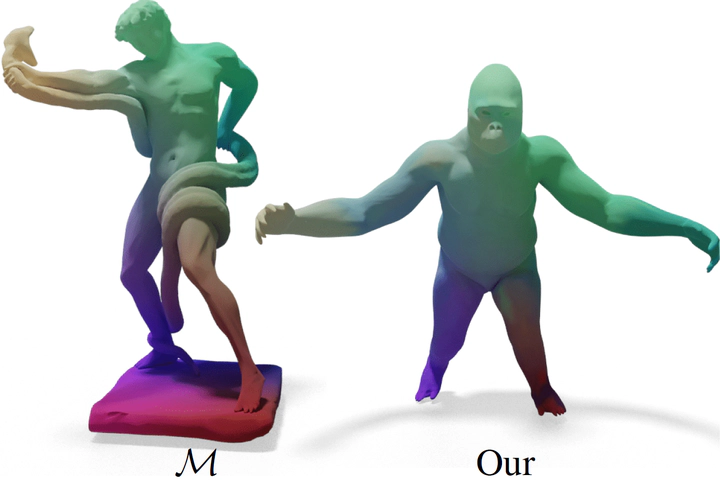
Abstract
Many innovative applications require establishing correspondences among 3D geometric objects. However, the countless possible deformations of smooth surfaces make shape matching a challenging task. Finding an embedding to represent the different shapes in high-dimensional space where the matching is easier to solve is a well-trodden path that has given many outstanding solutions. Recently, a new trend has shown advantages in learning such representations. This novel idea motivated us to investigate which properties differentiate these data-driven embeddings and which ones promote state-of-the-art results. In this study, we analyze, for the first time, properties that arise in data-driven learned embedding and their relation to the shape-matching task. Our discoveries highlight the close link between matching and smoothness, which naturally emerge from training. Also, we demonstrate the relation between the orthogonality of the embedding and the bijectivity of the correspondence. Our experiments show exciting results, overcoming well-established alternatives and shedding a different light on relevant contexts and properties for learned embeddings.